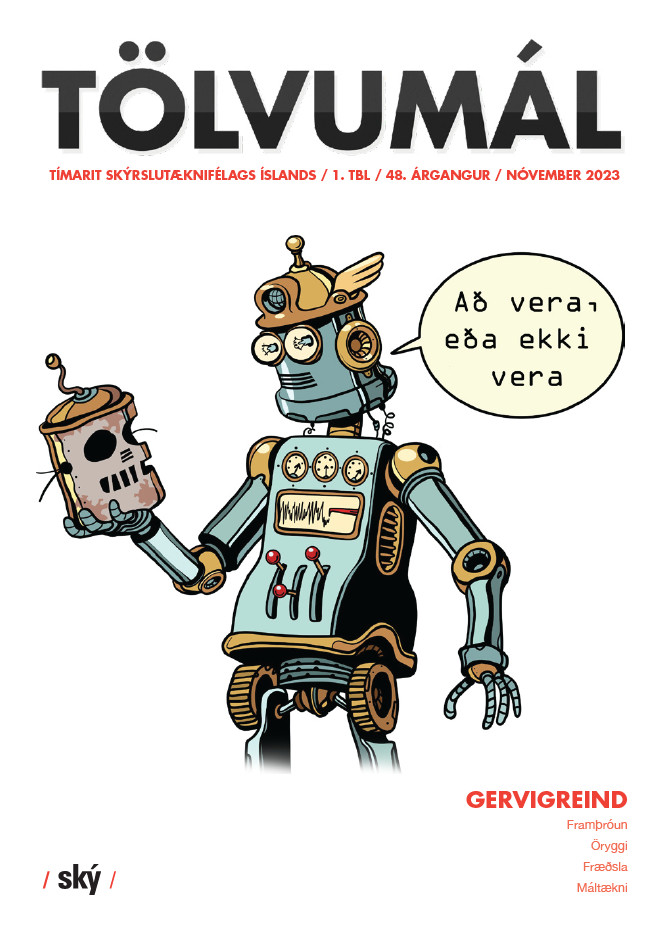
AI
 What will change our lives the most in the near future will probably be Artificial Intelligence (AI). We use it every day without realizing it. When people ask Siri where they should go to eat they are using AI probably not thinking about what is actually happening. „John McCarthy, who coined the term “Artificial Intelligence” in 1956, complained that “as soon as it works, no one calls it AI anymore“ (Urban, 2015). That is why people use it without realizing it. If we take a step back just 50 years from now no one could imagine that people would be using a portable phone and asking it for directions. We have to realize where we stand with AI so the question is where are we now with AI and where are we heading?
What will change our lives the most in the near future will probably be Artificial Intelligence (AI). We use it every day without realizing it. When people ask Siri where they should go to eat they are using AI probably not thinking about what is actually happening. „John McCarthy, who coined the term “Artificial Intelligence” in 1956, complained that “as soon as it works, no one calls it AI anymore“ (Urban, 2015). That is why people use it without realizing it. If we take a step back just 50 years from now no one could imagine that people would be using a portable phone and asking it for directions. We have to realize where we stand with AI so the question is where are we now with AI and where are we heading?
Where do we stand now with AI?
People might think of different things when they hear about AI, when we talk about AI here we are not referring to the definition of AI. „the capability of a machine to imitate intelligent human behavior“ (merriam-webster, no date.). That is robots. Here we are talking about the broader concept, the software behind it that does not necessarily need to be a robot. We use this kind of software every day and in the future it is probably going to be a lot more of it.
We use this software to make our lives easier, they are in products like an AI vacuum cleaner that take cares of cleaning the floors and AI that tightens your gardens up. There are other more sophisticated AI in use today like the ones that trade stocks on Wall Street. The old system of floor traders matching buyers and sellers has been replaced by machines that process trades automatically speeding the flow of buy and sell (Nelson D. Schwartz, 2010).
We also use AI for fun. We use it for fun in games, like when you play single player scrabble online, or play a computer at chess, but those are not very smart AI‘s, they only need to be able to form words or find the most correct move in the chess example. There are much smarter and heavier AI´s in bigger games like Grand Theft Auto that replicates a whole city.
For now AI‘s is mostly used to make our lives more fun and easier but In the future we will probably use more sophisticated AI´s to make our lives easier and to make
decisions for us. Netflix already has a system that shows you what you likely want to watch but they are working on a more sophisticated system. „That's why Netflix is moving into a field of research known as "deep learning." That means that Netflix is "training" its software to provide better recommendations by feeding massive amounts of information to a tech called "neural networks." Neural networks mimic how the human brain identifies patterns.“ (Russell, 2014).
Neural networks is something being researched a lot today. „The most common application of neural networks in computing today is to perform one of these “easy-for-a-human, difficult-for-a-machine” tasks, often referred to as pattern recognition“ (Shiffman, no date.).
So in the future we are probably going to have computer programs that do much more of our tasks than playing a game with us or mowing our lawns. Many of today's biggest companies are researching AI to make their product better, get better business insides and therefore influencing their actions against their customers.
It is evident that AI might play a lot bigger role that it does today with potential products commit out like personal robots and self-driving cars and companies researching neural networks. Even though there products are at their early stages they might get more advanced very quickly and that is not necessary something to worry about but is good to think about and see where we are going.
One might think that is not ethical for companies to control what you see like Netflix is working on, one might see a resemblance in that and subliminal messages in commercials which are banned, i.e it is unethical to control the content for the user if the user does not know about it. But of course AI won't be banned, people should just be aware of when it is being applied.
And that is a topic needed to be discussed before it gets too late. Tim Urban discusses in his blog post (http://waitbutwhy.com/2015/01/artificial-intelligence-revolution-1.html) about AI that the future might be much closer than we like to think as it grows exponentially (Urban, 2015).
That should make people be responsible with the new technology and that is what some people are thinking about today.
Responsibility and awareness of AI´s
Today many of the top tech people are discussing this subject. There are groups dedicated to protect people from possibly harmful technology one of those groups is The future of life Institute (FLI).
The FLI has a goal and that goal is „To catalyze and support research and initiatives for safeguarding life and developing optimistic visions of the future, including positive ways for humanity to steer its own course considering new technologies and challenges.“ (The Future of Life Institute, no date.). One of the things the FLI is watching is AI.
Today´s top tech people are making this topic their concern, including Elon Musk who recently donated 10 million dollars to FLI. Two of the advisory board members of FLI are Stephen Hawking's and Morgan Freeman. Obviously people are making this topic their concern but not everybody thinks about it, but it is good that some people are creating awareness. That is where we stand today with AI but what might we see in the future?
The future
In the future artificial intelligence will play a big role in our daily lives. We will see self-driving cars, self-flying planes, robots working our day time’s job like cooking and serving our food, working with constructions and many other things, especially when computers can learn. This is both good and bad for obvious reason. Self-driving cars will increase our safety on the roads and working with constructions can be a dangerous job, this is one of the positive sides.
Professor Michael Osborne says that robots will replace almost half of our jobs over the next 20 years, we will have robots and computers working from cooks to truck drivers, flipping burgers and many other low-skilled jobs (Branco, 2015).
AI will also play a role when diagnosing diseases in humans with the help of machine learning. „The research by Indiana University found that using patient data with machine-learning algorithms can drastically improve both the cost and quality of healthcare through simulation modeling.“ (Mearian, 2013). So maybe AI won't only affect low level jobs but also educated jobs.
And what happens with all these people who might be without work? Maybe that will be the end of the capitalism that Karl Marx predicted.
Although there are still a few years until AI machines can learn and do the same things humans do AI technology still has come a far way. For example AI can quickly and accurately understand most of what you say and translate it into another language.
Final words
Obviously there are some things we need to think about before AI gets too big. There are many indicators that in the future we will see a lot of changes. But the fact that some people are thinking about it is good but general knowledge could be better because it is not good that people do not recognize that they are using AI. AI will evolve with us and that is good. It will make our lives easier and help us in medical advances, we just need to beaware.
Now we are at a stage where AI plays a role in our lives but in the future it will probably play a bigger role as the technology keeps evolving.
Authors: Alexander Baldvin Sigurðsson & Elvar Freyr Helgason, students Reykjavik University
References
Branco, J. (23. March 2015). /technology/sci-tech/robots-to-replace-almost-half-of-jobs-over-next-20-years-expert-20150323-1m5oei.html. Sótt frá brisbanetimes.com.au: http://www.brisbanetimes.com.au/technology/sci-tech/robots-to-replace-almost-half-of-jobs-over-next-20-years-expert-20150323-1m5oei.html
Mearian, L. (12. Feb 2013). /article/2494918/healthcare-it/ai-found-better-than-doctors-at-diagnosing--treating-patients.html. Sótt frá computerworld.com: http://www.computerworld.com/article/2494918/healthcare-it/ai-found-better-than-doctors-at-diagnosing--treating-patients.html
merriam-webster. (án dags.). dictionary/artificial intelligence. Sótt frá http://www.merriam-webster.com: http://www.merriam-webster.com/dictionary/artificial%20intelligence
Metz, C. (6. Feb 2015). /2015/06/facebook-opens-paris-lab-ai-research-goes-global/. Sótt frá wired.com: http://www.wired.com/2015/06/facebook-opens-paris-lab-ai-research-goes-global/
Nelson D. Schwartz, L. S. (6. May 2010). 2010/05/07/business/economy/07trade.html?_r=0. Sótt frá http://www.nytimes.com/: http://www.nytimes.com/2010/05/07/business/economy/07trade.html?_r=0
Russell, K. (11. Feb 2014). netflix-using-ai-to-suggest-better-films-2014-2?IR=T. Sótt frá businessinsider.com: http://www.businessinsider.com/netflix-using-ai-to-suggest-better-films-2014-2?IR=T
Shiffman, D. (án dags.). /book/chapter-10-neural-networks/. Sótt frá natureofcode.com/: http://natureofcode.com/book/chapter-10-neural-networks/
The Future of Life Institute. (án dags.). team/. Sótt frá http://futureoflife.org: http://futureoflife.org/team/
Urban, T. (January 2015). /2015/01/artificial-intelligence-revolution-1.html. Sótt frá http://waitbutwhy.com: http://waitbutwhy.com/2015/01/artificial-intelligence-revolution-1.html
wired. (1. January 2015). /2015/01/elon-musk-ai-safety/. Sótt frá http://www.wired.com: http://www.wired.com/2015/01/elon-musk-ai-safety/
Skil á efni
Leita í vefútgáfu Tölvumála
Um Tölvumál
Tölvumál - tímarit Skýrslutæknifélags Íslands er óháð tímarit um tölvutækni og hefur verið gefið út frá árinu 1976.
Vefútgáfa Tölvumála birtir vikulega nýja grein á vef Ský og árlega er gefið út veglegt prentað tímarit undir nafninu "Tölvumál" þar sem fjallað er um tölvutækni frá ýmsum sjónarhornum og er þema blaðsins jafnan valið snemma árs og útgáfa að hausti.
Ritnefnd Ský sér um að afla efni í Tölvumál og geta allir sem áhuga hafa sent inn efni.
